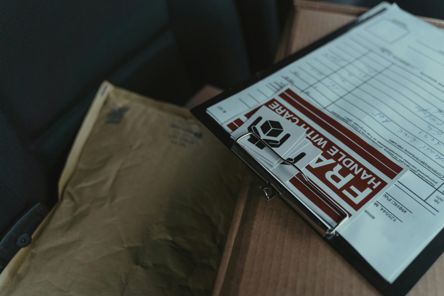Transportation and logistics companies that take on government contracts to move munitions and explosives face unique challenges compared to standard cargo. There are strict regulations, security considerations, and safety precautions that must be followed to properly and legally handle these sensitive items. SEKO Government, Space & Defense has decades of experience safely and efficiently managing logistics for all types of cargo, including munitions and explosives for military and government clients.
ADHERING TO REGULATIONS
Unlike standard commercial freight, the handling of hazardous materials like ammunition and explosives is highly regulated. Companies need to comply with rules set by entities like the Bureau of Alcohol, Tobacco, Firearms and Explosives (ATF), the Department of Transportation (DOT), and the Occupational Safety and Health Administration (OSHA). Failing to follow protocols can result in steep fines or loss of operating licenses and certifications.
All employees involved in the handling of munitions and explosives must pass background checks and obtain special licensing. Vehicles and facilities used must also meet strict security and storage standards. Shipping paperwork and documentation must be meticulously completed to account for these sensitive cargo at every step in the supply chain. Companies must work hand-in-hand with regulators and be subject to oversight and audits. Staying constantly up-to-date on evolving regulations is key.
ENSURING SECURITY
Preventing theft, diversion, or access to munitions and explosives by unauthorized parties is another critical consideration. Companies must have robust security protocols covering personnel, facilities, vehicles, cargo tracking, and more. Background vetting of employees helps, while facilities must have features like secure perimeter fencing, surveillance systems, controlled access points, and more.
Cargo security also entails detailed tracking of inventory with logs of receipts, staging, loading, and deliveries. Route planning and selection of secure stops and storage depots is important as well. With diligent security precautions, logistics companies can help guard against improper access or loss of dangerous items during transport.
HANDLING THE CARGO & PRIORITIZING SAFETY
Safety is paramount when dealing with hazardous cargo like ammunition and explosives. Strict procedures must govern all handling to prevent accidental ignition, explosion, or exposure that could harm workers and surrounding communities.
Personnel need specialized training in protocols for safe loading, unloading, transportation, and storage. Items like ammunition and gunpowder require certain segregation and quantities when loading mixed shipments. Inventory control and monitoring helps identify any damaged or leaking containers that pose a safety threat. Vehicles and facilities need design features and equipment to help contain and suppress accidental explosions.
With defensive safety measures and proven operating procedures, logistics providers can move munitions and explosives with minimized risk. Safety-focused cultures and compliance ultimately protects lives along with cargo.
SIMPLIFYING COMPLEX LOGISTICS
Coordinating the end-to-end supply chain for arms, munitions, and explosives adds layers of complexity for logistics companies. Cargo may originate from various manufacturers before consolidation. Strategic coordination is needed between suppliers, storage depots, transportation modes, security and regulatory agencies, and ultimate delivery points within tight timelines.
Resource planning is key for securing necessary assets like secured vehicles, warehouse space, loading equipment, and specialty personnel. Route optimization ensures timely and efficient movement through the logistics network while accounting for regulatory and security factors. Oversight and contingency planning also helps mitigate any disruptions from weather, equipment issues, or other unexpected events.
With robust logistics expertise and experience, companies can orchestrate smooth transport of even highly-controlled and hazardous cargo. Managing complexity ensures regulatory compliance and on-time delivery.
MANAGING GOVERNMENT CONTRACTS
Many logistics companies provide outsourced services for transporting munitions and explosives on behalf of government defense and security agencies. These contracts come with added expectations and oversight.
Personnel must undergo additional clearances and background checks before handling government arms and explosives. Specialized training covers protocols mandated by particular agencies. Storage facilities and transportation must adhere to strict standards beyond just regulations.
Oversight includes coordination with government officials and site inspectors throughout the project. Extensive documentation and inventory logs are required at every step. Specialized reporting provides full visibility over sensitive cargo. Companies must also demonstrate continuity and redundancy planning to prevent any disruptions to crucial defense logistics.
Working cooperatively with government contracting officers and following agency protocols demonstrates a logistics provider’s commitment to fully securing and protecting assets entrusted to them. Careful management of these sensitive contracts establishes trust in a company’s capabilities and procedures.
PARTNER WITH THE EXPERTS AT SEKO
For over 30 years, SEKO has proudly handled sensitive logistics for military and government customers through our Government, Space & Defense sector. Our rigorous protocols and dedication to security, safety, and regulatory compliance means your most sensitive cargo is in experienced, trustworthy hands.
Our logistics specialists can consult on meeting exacting standards for proper transportation of munitions, explosives, and other arms. We also leverage the latest tracking and monitoring for end-to-end visibility over your sensitive cargo. Contact SEKO today to learn more about our capabilities or request a quote for your unique needs. Our commitment is getting the job done right, on time, and without incident.





